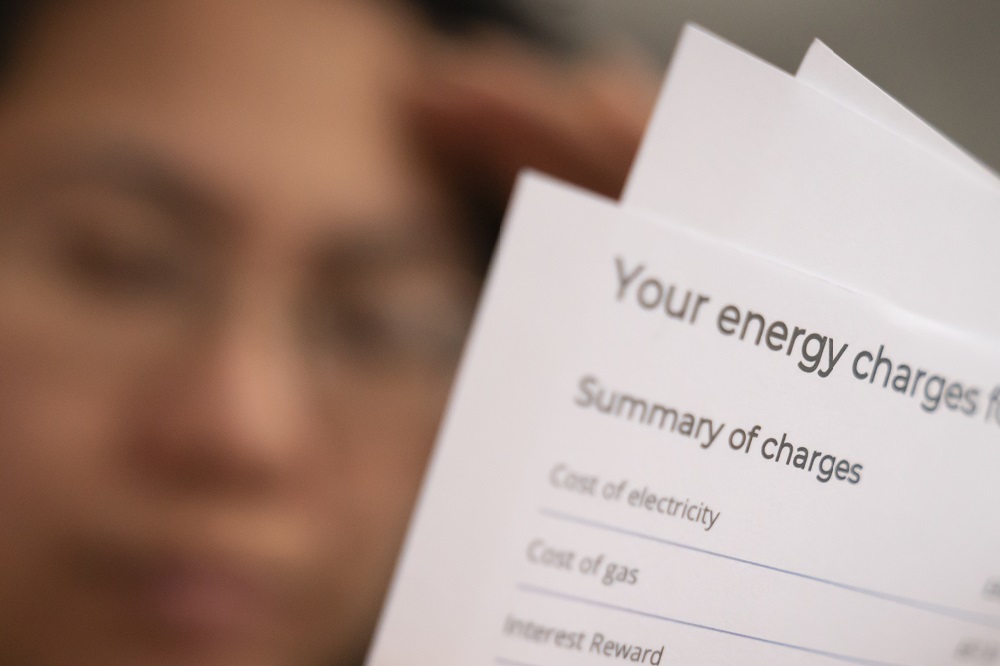How can I lower my energy bills and what help is there for me?

Households across Wales are facing another energy bill increase this winter after the regulator raised its price cap from January.
Ofgem’s price cap is rising by 1.2% or £21 from the current £1,717 a year for a typical household to £1,738.
Here we look look at why the price cap is going up and what people can do to mitigate the cost of their energy bills.
What is Ofgem’s price cap?
The energy price cap sets a maximum price that energy suppliers can charge consumers in England, Scotland and Wales for each kilowatt hour (kWh) of energy they use.
The figures provided by Ofgem indicate what a household using gas and electricity, and paying by direct debit, can expect to pay if their energy consumption is typical.
It is important to note that it does not limit a home’s total bills because people still pay for the amount of energy they use – so if it is above the average they will pay more, and if it is below they will pay less.
Energy is regulated separately in Northern Ireland.
Why is the price cap rising?
Ofgem said our reliance on volatile international markets and rising tensions around the world continued to have a direct impact on household bills.
Tim Jarvis, director general of markets at Ofgem, said: “Our reliance on volatile international markets, which are affected by factors such as events in Russia and the Middle East, means the cost of energy will continue to fluctuate.
“So it’s more important than ever to stay focused on building a renewable, homegrown energy system to bring costs down and give households stability.”
What can I do to lower my bills?
Mr Jarvis said he was encouraging people to “shop around” to see if they can get a better deal on their energy tariff.
“While today’s change means the cap has remained relatively stable, we understand that the cost of energy remains a challenge for too many households. However, with more tariffs coming into the market, there are ways for customers to bring their bill down so please shop around and look at all the options.”
He added: “In the short term though, anyone struggling with bills should speak to their supplier to make sure they’re getting the help they need and look around to make sure they’re on the best, most affordable deal for them.”
Which? Energy editor Emily Seymour said: “It’s still worth shopping around for energy deals – look out for any that might be cheaper than the January price cap when it comes into effect.
“Unfortunately, there’s no ‘one size fits all’ approach when it comes to fixing an energy deal – it will all depend on your individual circumstances.
“You should compare what your monthly payments would be on a fixed deal with what you’d expect them to be if you remain with the price-capped variable tariff to see what the best option is for you.
“As a rule of thumb, we’d recommend looking for deals cheaper than the price cap, not longer than 12 months and without significant exit fees.
“If you’re worried about affording your bills this winter, don’t suffer in silence. Speak to your energy company – they are obliged to help you if you’re struggling to pay your bills.”
What support is available for me?
Ofgem has urged people to make the most of any state benefits they are entitled to, which could help with paying energy bills as well as the wider cost of living.
Around 1.4 million pensioners are already receiving pension credit, but the Government estimates up to 880,000 further households are eligible for the support for those with a low income.
People receiving pension credit qualify for the winter fuel payment worth up to £300, to help with bills.
Previously, anyone over state pension age could receive the payment, but this was changed by the new Government, meaning about 10 million pensioners will miss out this year.
I think I’m going to struggle to pay my bills, what can I do?
People are encouraged to contact their energy supplier if they are worried about paying their bills.
Energy companies are required to work with customers to agree on a payment plan they can afford, which could mean more flexibility over how and at what time people pay.
They should take into account people’s income and outgoings, debts and personal circumstances, and an estimate of how much energy will be used in future, for which regular meter readings can help build a more accurate picture.
Support our Nation today
For the price of a cup of coffee a month you can help us create an independent, not-for-profit, national news service for the people of Wales, by the people of Wales.






I cant affect the prices but I can affect what I use. Even after shopping around. I cut a lot of draughty windows issue by changing the double glazing seals. That made the rooms a lot warmer. £90 or so to do all the windows and doors diy, the windows have an inner and outer seal and my old seals pulled out so easy to replace. Attic insulation was out of code, topped that up and insulated the attic door. More gains. Use doors to close rooms off and TRV set correctly and boiler set to the correct setting for… Read more »
I’m fully on board with all that Jeff: there’s loads you can do to regulate energy use at home. On a broader scale though, we need to start calling out any politician who’s signed up to the Net Zero fairy tale. It’s about to fall apart in spectacular fashion, and its enablers need to be held to account for their reckless stupidity.
Here is a start for you….
https://bylinetimes.com/2024/11/05/kemi-badenoch-and-shadow-net-zero-secretary-funded-by-backers-of-tufton-street-climate-science-denial-group/
Forget lower bills…American skulduggery emerges around the future of sabotaged Russian gas pipeline Nord Stream 2 and future European supply.
https://oilprice.com/Energy/Energy-General/Miami-Financiers-Bold-Bid-for-Nord-Stream-2-Sparks-Controversy.html